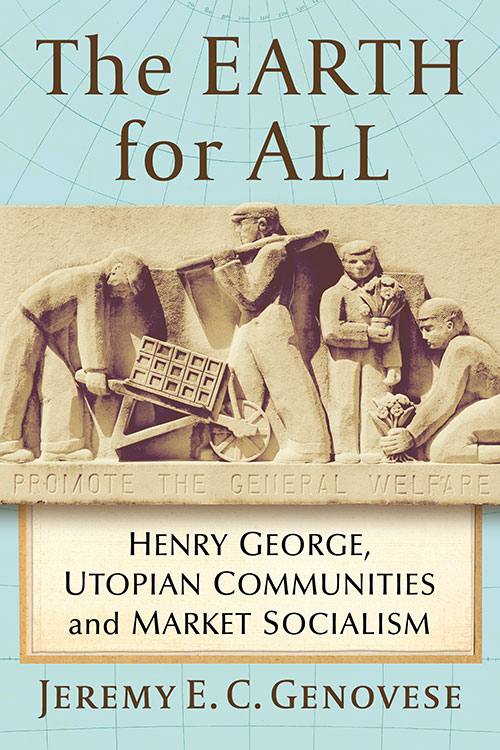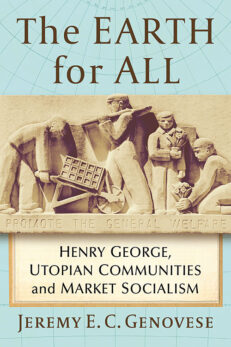The Earth for All
Henry George, Utopian Communities and Market Socialism
$49.95
In stock
About the Book
Throughout history, groups of people disillusioned with society have tried to create utopian communities organized on new principles. Typically, they hold some or all of their property in common. Often, they are motivated by religious convictions, or by some type of socialist ideology. While many of these communities collapsed, some in a matter of months, a few of them continued for decades and even generations.
This book analyzes what makes a utopian group successful and what can be learned from their example. Among the most successful of these utopian experiments were those inspired by the teachings of American economist Henry George. George’s vision of expanded individual freedom coupled with economic justice gives us a map towards a better world.
About the Author(s)
Bibliographic Details
Jeremy E. C. Genovese
Format: softcover (6 x 9)
Pages: 218
Bibliographic Info: 15 photos, appendix, bibliography, index
Copyright Date: 2025
pISBN: 978-1-4766-9358-3
eISBN: 978-1-4766-5506-2
Imprint: McFarland
Table of Contents
Acknowledgments vii
Preface 1
Were Utopian Communities Failures? 3
The Utopian Dilemma 10
The Shakers and Other Religious Communities 22
Bellamy’s Utopia 42
Bellamy Colonies 59
The Message of Henry George 70
Marie Howland: From Fourierism to the Single Tax 83
The Georgist Utopias 96
Utopia and Behaviorism 134
Justice and Utopia 164
Conclusion 174
Appendix: Esperanto and Market Fundamentalism 183
Bibliography and References 189
Index 203






